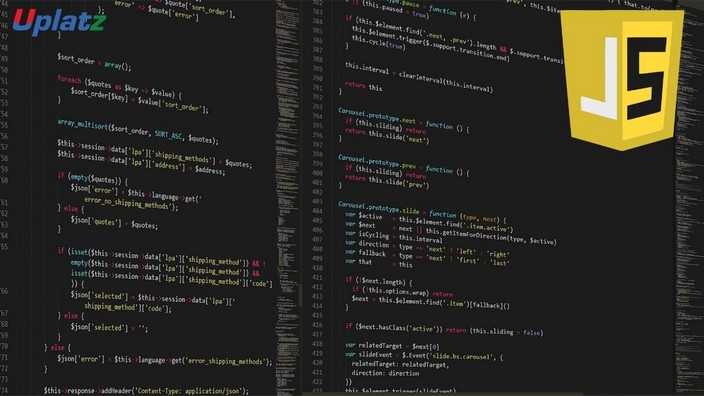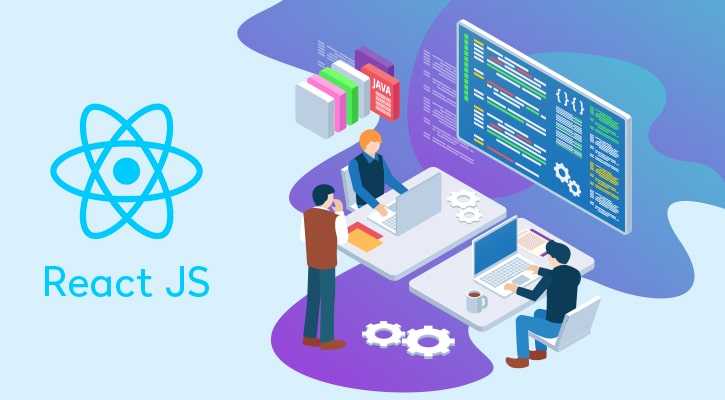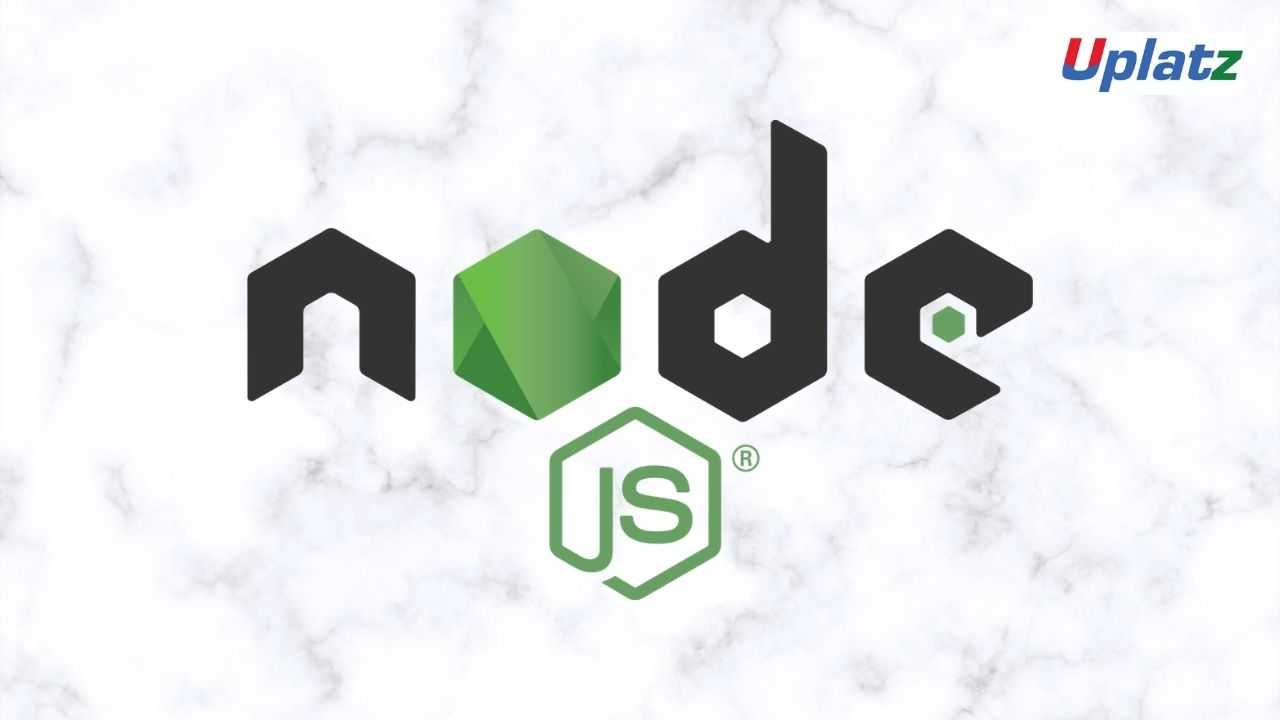Angular: Full-Stack Application Development
Master Modern Web Development with Angular. Build Robust & Scalable Web Applications. Crafting Interactive UIs and Robust Server-Side Systems.Preview Angular: Full-Stack Application Development course
Price Match Guarantee Full Lifetime Access Access on any Device Technical Support Secure Checkout Course Completion Certificate 93% Started a new career
BUY THIS COURSE (
93% Started a new career
BUY THIS COURSE (GBP 12 GBP 29 )-
 96% Got a pay increase and promotion
96% Got a pay increase and promotion
Students also bought -
-

- JavaScript Programming
- 35 hours
- GBP 12
- 518 Learners
-

- React
- 20 Hours
- GBP 12
- 2710 Learners
-

- Node.js
- 21 Hours
- GBP 12
- 1896 Learners

About the Course: Angular – Full-Stack Application Development (Self-Paced Online Course)
Master the art of building complete web applications from front to back with this in-depth Angular: Full-Stack Application Development course. Designed for flexibility, this self-paced online program delivers rich, instructor-led pre-recorded video sessions, enabling you to learn on your own schedule and at your own pace—whether you're a full-time professional, a student, or someone transitioning into web development. Upon successful completion, learners are awarded a Course Completion Certificate, serving as a testament to their Angular and full-stack development expertise.
As web development continues to evolve rapidly, the ability to develop both the front-end and back-end of modern applications is highly valued in the tech industry. Angular, backed by Google, has become one of the most widely adopted front-end frameworks for building responsive and maintainable single-page applications (SPAs). Combined with back-end integration, it empowers developers to build complete full-stack web applications that are dynamic, scalable, and production-ready.
This comprehensive course goes beyond just Angular basics. It equips you with a deep, working knowledge of Angular 19, including new features and best practices for front-end development, while also exploring how Angular can seamlessly integrate with popular backend technologies such as Node.js, Express, and RESTful APIs. Whether you're building enterprise-level applications or lightweight web tools, this course is designed to prepare you for real-world full-stack development challenges.
What You Will Learn
The course curriculum is structured to guide you step-by-step, starting from fundamental concepts and progressively moving into advanced Angular techniques and backend integration. With a mix of theoretical lessons, coding walkthroughs, and hands-on projects, you’ll gain practical experience in developing real-world applications.
Who Should Take This Course?
This course is ideal for:
- Aspiring full-stack developers who want to master both the client-side and server-side of web applications.
- Front-end developers looking to expand their skillset to backend integration.
- Back-end developers wanting to become proficient in modern front-end technologies.
- Computer science students or graduates preparing for technical roles in development.
- Professionals seeking to build their own applications or enhance existing systems with Angular.
No prior experience with Angular is required, but familiarity with HTML, CSS, JavaScript, and basic programming concepts will be beneficial.
How to Use This Course Effectively
To ensure you get the maximum benefit from this self-paced course, here’s a structured guide to help you learn efficiently and build lasting expertise:
1. Set Up a Study Schedule
Divide the course into weekly goals and dedicate specific hours each week to complete the video sessions and exercises. A consistent approach helps maintain learning momentum.
2. Follow the Sequence
Start with the foundational Angular concepts before moving into backend integration. Skipping ahead might result in confusion with more advanced topics that rely on earlier modules.
3. Code Along With the Instructor
As you watch each video, replicate the code examples in your own development environment. This hands-on practice is crucial for understanding Angular’s syntax and behavior.
4. Explore the Code
After completing examples, tweak the code to see how changes affect application behavior. This experimentation encourages deeper learning and builds confidence in debugging.
5. Complete All Assignments and Mini-Projects
Each module is supplemented with coding assignments or mini-projects to reinforce your understanding. Avoid skipping these—they provide practical skills needed for real-world development.
6. Use Official Documentation
Refer to the Angular documentation for in-depth technical details or clarification. It’s a valuable resource that complements the course content.
7. Take Notes and Create Cheatsheets
Write down key concepts, Angular CLI commands, decorators, and lifecycle methods. These notes become a quick reference when working on future projects.
8. Build a Capstone Project
Apply your knowledge by creating a full-fledged Angular + Node.js application. This not only strengthens your understanding but also serves as a strong portfolio piece for job applications.
9. Revisit Difficult Topics
Angular and full-stack development involve complex topics like observables, dependency injection, and server-side communication. Don’t hesitate to replay videos or revisit modules until you’re comfortable.
10. Earn and Share Your Certificate
After completing the course and capstone project, download your Course Completion Certificate and showcase it on your LinkedIn profile, resume, or portfolio to highlight your capabilities.
What’s Next After This Course?
Completing this Angular full-stack course opens doors to advanced learning and career growth. You may consider exploring:
- Advanced state management with NgRx or Akita
- Progressive Web Apps (PWA) development
- Angular with Firebase for real-time applications
- DevOps practices for continuous integration and deployment
- Building microservices with Angular front-ends
By mastering Angular for full-stack application development, you’ll gain the skills to build powerful, responsive, and scalable web applications that meet modern industry demands. Whether you're aiming to land a front-end job, become a full-stack developer, or launch your own software product, this course equips you with the tools and confidence to succeed.
Course/Topic 1 - Course access through Google Drive
-
Google Drive
-
Google Drive
By the end of this course, learners will be able to:
- Understand the core principles of Angular and its ecosystem.
- Set up and configure Angular 19 applications efficiently.
- Build dynamic user interfaces with components, directives, and pipes.
- Manage application state with Angular Signals and RxJS.
- Implement routing, lazy loading, and modular architectures.
- Develop form-driven applications with reactive and template-driven approaches.
- Communicate with APIs using Angular services and handle CRUD operations.
- Optimize and deploy Angular applications to cloud platforms like Vercel.
- Integrate Tailwind CSS for advanced UI styling.
- Master dependency injection and performance optimization strategies.
Angular - Full Stack Application Development - Course Syllabus
Module 1: Angular Foundations
- Introduction to Angular and its Advantages
- Setting up Angular 19 Environment
- Understanding Initial Application Structure and Files
- Key Angular CLI Commands for Development
- Basics of Data Binding and Interpolation
Module 2: Core Angular Concepts
- Angular Components and Lifecycle
- Building Custom and Reusable Components
- Event Binding and Function Handling
- TypeScript Fundamentals and Data Types
- Hands-on: Building a Counter App
- DOM Events and Two-Way Data Binding
- Styling Components and Dynamic Styles
- Conditional Rendering: *ngIf, *ngSwitch, *ngFor Loops
- Introduction to Angular Signals, Computed Signals, and Effects
Module 3: Routing, Forms, and Data Management
- Implementing Basic and Dynamic Routing
- Navigation Headers and 404 Pages
- Passing Data with Route Parameters
- Template-Driven and Reactive Forms
- Form Validations and Data Binding Techniques
- Component Communication: @Input, @Output
- Data Transformation using Angular Pipes
- Creating and Using Custom Pipes
- Introduction to Angular Services and API Integration
- CRUD Operations (POST, GET, PUT, DELETE)
- Populating Forms with API Data
- Lazy Loading Modules for Performance Optimization
Module 4: Advanced Angular and Deployment
- Building and Deploying Angular Applications Locally
- Hosting Angular Applications on Vercel
- Integrating Tailwind CSS with Angular Projects
- Introduction to RxJS and Observables
- Comparing RxJS Observables and Angular Signals
- Mastering Dependency Injection
- Advanced Performance Optimization Techniques
Upon successful completion of the Angular: Full-Stack Application Development course, learners will receive a Course Completion Certificate, verifying their knowledge and skills in building scalable, professional-grade Angular applications.
This certification demonstrates your readiness for front-end and full-stack developer roles and enhances your resume for job opportunities in the web development industry.
Completing the Angular course opens up diverse career paths in the tech sector. With Angular expertise, you can pursue roles such as:
- Front-End Developer
- Full-Stack Developer
- Angular Developer
- UI/UX Developer
- Web Application Engineer
- Software Developer (Frontend/Full Stack)
Industries like IT services, finance, healthcare, e-commerce, and startups actively seek Angular developers to build and maintain modern web applications.
Whether you're aiming to transition into front-end development or elevate your current programming skills, this course equips you with practical expertise for today's competitive job market.
1. What is Angular and what are its key features?
Angular is a TypeScript-based front-end framework developed by Google for building dynamic web applications. Key features include two-way data binding, dependency injection, component-based architecture, directives, pipes, services, RxJS integration, and powerful routing.
2. How does Angular differ from other front-end frameworks like React or Vue?
Angular is a complete framework offering a full solution including routing, state management, and HTTP client out of the box, whereas React and Vue are primarily libraries focused on the view layer, often requiring additional libraries for a full-stack solution.
3. What is Angular CLI and why is it important?
Angular CLI (Command Line Interface) simplifies the development process by automating tasks such as project creation, code scaffolding, testing, and deployment. It ensures standardized project structure and improves developer productivity.
4. Explain two-way data binding in Angular.
Two-way data binding allows synchronization between the model and the view. Changes in the input field update the component class property, and changes in the property update the view. It is implemented using [(ngModel)] syntax.
5. What are Angular Services and why are they used?
Services are reusable classes in Angular used to organize and share data or logic across multiple components. They promote code reusability, separation of concerns, and facilitate tasks like HTTP requests or business logic management.
6. What are Angular Signals and how do they help?
Angular Signals are a reactive primitive introduced to simplify state management. They allow tracking changes in values over time without needing full-fledged state management libraries like NgRx, making apps more efficient and easier to debug.
7. How does Routing work in Angular?
Routing in Angular allows navigation between different components based on the URL path. The RouterModule maps paths to components, supports dynamic parameters, lazy loading, and guards for route protection.
8. What is Lazy Loading in Angular?
Lazy loading is a technique where feature modules are loaded on demand rather than at the initial load. It improves application performance by reducing the initial bundle size and speeding up the loading time.
9. How are Reactive Forms different from Template-Driven Forms in Angular?
Reactive Forms are model-driven and provide more control over form behavior and validation through the component class, whereas Template-Driven Forms rely heavily on the template (HTML) and are simpler for basic use cases.
10. What is Dependency Injection in Angular?
Dependency Injection (DI) is a design pattern where dependencies (services, for example) are injected into components rather than created inside them. Angular’s built-in DI system improves code modularity, testability, and reusability.









